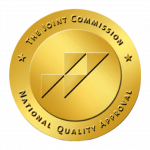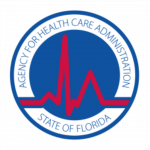What is Polydrug Use
The term polydrug use refers to using more than one substance at one time. This includes taking stimulants with alcohol or mixing different types of drugs. Polydrug use intensifies the effects of substances making them more dangerous. For example, taking painkillers with alcohol intensifies the effects of the painkillers, however, can lead to nausea, drowsiness, fainting, and difficulty breathing.
According to the U.S. Department of Health and Human Services, in 2011, over half of the alcohol-related visits to the emergency room involved illicit and prescription drugs. Moreover, many individuals who partake in polydrug use don’t realize the dangers of combining substances. Even mixing prescription drugs unintentionally can be a lethal combination.
Polydrug Categories
The National Institute of Health defines polydrug use as the use of multiple drugs at the same time, using them sequentially, or using more than one drug or type of drug, with an addiction to at least one.
The different types of polydrug categories include:
- Sequential use: A person who takes different drugs in sequence, or at different times. For example, using cocaine or methamphetamine in the morning and switching to heroin at night.
- Simultaneous use: Using different substances at the same time. Mixing alcohol with a stimulant, like cocaine, is very common to help those who are partying to stay awake. Mixing cocaine and heroin is a common combination called a speedball. However, this dangerous mixture has taken many lives.
- Opportunistic use: Let’s face it, drugs are expensive. This occurs when an individual does not have a steady source for drugs and uses whatever they can get their hands on. Therefore, mixing any drug to get the high they are seeking.
- Unintentional use: Mixing drugs unintentionally is common because many dealers cut their drugs with different substances. For example, drug dealers will cut their heroin with other substances to increase the number of bags to sell.
Combinations and Effects
Alcohol and benzodiazepines: Anti-anxiety medications like Xanax, Valium, and Paxil are often mixed with alcohol, even when warned not to. Although these are prescribed by doctors, benzodiazepines are commonly abused. When mixing these two substances together some of the risks include:
- Drowsiness
- Dizziness
- Slowed breathing
- Loss of motor control
- Memory Loss
- Heightened risk of overdose
Alcohol and cough medicine: Many individuals will drink cough medicine for recreational purposes and mix it with sprite, commonly known as “lean.” However, some choose to mix in alcohol which can lead to:
- Dizziness
- Drowsiness
- Risk of overdose
Alcohol and opioids: Alcohol and opioids, pain relievers or illicit opioids, are both central nervous system depressants. Consuming the two simultaneously can cause serious and dangerous side effects. Many prescription pain killers are formulated to be long-lasting, thus, causing lingering effects. Although someone may think that the substance is out of their system, drinking alcohol can cause side effects including:
- Drowsiness
- Dizziness
- Risk of overdose
- Difficulty breathing
- Loss of motor control
- Loss of memory
- Coma
- Death
Cocaine and heroin: As we touched on above, a speedball is mixing cocaine and heroin. Individuals taking speedballs want the best of both drugs without the dopiness of heroin. However, the side effects that can occur include:
- Confusion
- Blurred vision
- Paranoia
- Loss of motor skills
- Stroke
- Heart attack
- Respiratory failure
Get Help Today
Addiction and substance abuse is a slippery slope and mixing substances together is a dangerous game. It can not only further an addiction but intensify the harmful side effects and heighten the risk of overdose. If you or someone you know is struggling with addiction contact the Harm Reduction Center. HARC is a private healthcare facility in South Florida that provides clients with highly individualized treatment options. HARC offers all outpatient levels of care including Medication-Assisted Treatment and Partial Hospitalization Programs.
If you are ready to break free from your addiction with the support of a team of professionals ready to help, contact us today!














